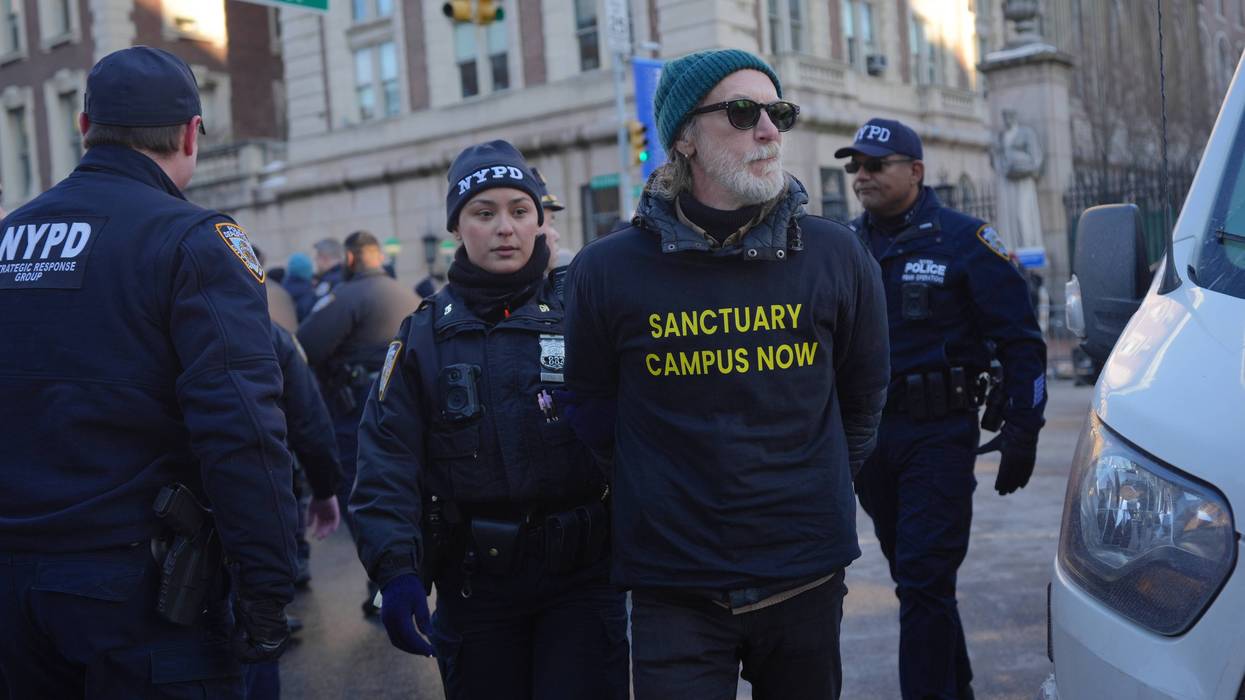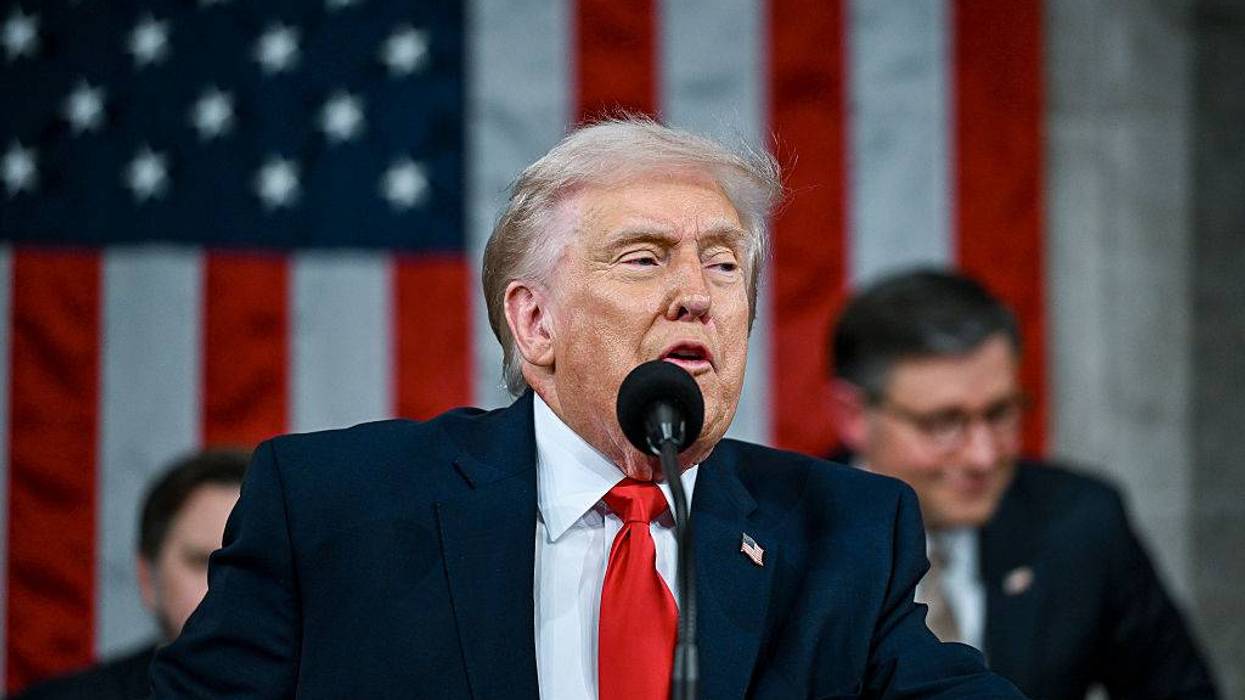November, 14 2025, 01:05pm EDT

For Immediate Release
Contact:
Mary Olson, gripcom2025@gmail.com;
Stephen Kent, skent@kentcom.com;
Cindy Folkers, cindy@beyondnuclear.org
Citizens Groups and Experts Warn Federal Officials that Recent Trump Executive Orders Would Decimate Standards for Radiation Exposure
Directives would harm public health, disproportionately affecting women and children
Over forty citizen’s sector organizations including the national nonprofit Physicians for Social Responsibility have sent a joint letter to federal officials warning of public health consequences of a series of executive orders by President Trump which direct the NRC to dramatically weaken Standards for Protection Against Radiation in the US federal code. The letter points out sharply disproportionate impacts on women and children from weakening existing radiation exposure standards and calls for strengthening them.
The letter is posted here. It was spearheaded by the nonprofit Generational Radiation Impact Project (GRIP) and Beyond Nuclear. and sent to US Nuclear Regulatory Commissioners, Health and Human Services Secretary Robert F. Kennedy Jr., Surgeon General Denise Hinton, and other key elected and appointed officials.
Recent Trump executive orders direct the NRC to “reconsider” the linear no-threshold (LNT) model. The joint letter argues that this “would undermine public trust by falsely claiming that the NRC’s radiation risk models lack scientific basis, despite decades of peer-reviewed evidence and international consensus.” The widely accepted LNT model has no limit “below regulatory concern,” i.e. no level below which radiation exposure can be treated as negligible or zero-risk. Where applied, LNT takes account of proportional cancer and health risks of all tiny exposures no matter how small.
Trump executive orders direct the NRC to undertake new rulemaking and “wholesale revision” of existing radiation regulations, which would likely lead to the NRC abandoning LNT and raising allowable exposure limits.
A July 2025 Idaho National Laboratory report commissioned by the Department of Energy recommended loosening the public radiation standard fivefold to 500 millirems. In 2021 the NRC roundly rejected a petition to raise allowable radiation exposures for all Americans, including children and pregnant women, to 10 Rems a year, 100 times the current limit.
But past NRC opposition to such changes stands to be reversed by the Trump executive orders. If federal radiation regulations were weakened to permit exposures of 10 Rems a year, scientists estimate that over a 70-year lifetime, four out of five people would develop cancer they would not otherwise get.
Today’s joint letter stresses that health damage would not be evenly distributed across the population, but would disproportionately affect women and children, who are biologically more susceptible to ionizing radiation than men. And an article published today in the Bulletin of Atomic Scientists cites several lines of evidence “that women and young girls are significantly more vulnerable to radiation harm than men—in some cases by as much as a ten-fold difference” and that “infants are especially vulnerable to radiation harm.”
“[NRC] bases its risk assessments on Reference Man, a model that represents a young adult male and fails to reflect the greater impacts to infants, children, and women—pregnant or not,” the joint letter states. “Newer research has shown that external radiation harms children more than adults and female bodies more than male bodies. Research on internal exposures…has not yet been sufficiently analyzed to discover if there are broad age-based or male/female differences in impact…. Existing standards should therefore be strengthened to account for these life-stage and gender disparities…not weakened. Radiation causes infertility, loss of pregnancy, birth complications and defects, as well as solid tumor cancer, leukemia, non-cancer outcomes including cardiovascular disease, increased incidence of autoimmune disease and ongoing new findings.”
In cases where cancer, heart disease, and vascular degradation including stroke are caused by radiation, they are documented at higher rates in women than in men, according to 2024 UNIDIR report Gender and Ionizing Radiation.
The joint letter urges the NRC to “to stand up to the Executive Order’s marching orders to ‘promote’ nuclear power—a mission outside its legal regulatory mandate,” and adopt “stronger, science-based radiation protections….Contemporary research shows that radiation’s impact is far greater on females, children, and fetuses—the most at-risk postnatal group being girls from birth to age five. A truly protective framework would replace Reference Man with a lifecycle model.”
"All US radiation regulations and most radiation risk assessments are based on outcomes for the Reference Man,” said Mary Olson, CEO of GRIP, the organization which spearheaded the joint letter, and co-author of Gender and Ionizing Radiation. “Young men like the Reference Man are harmed by radiation, but they’re more resistant to harm than are women and children. Radiation causes cancer in women at twice the rate of adult men, while the same exposure in early childhood, will, across their lifetimes, produce seven times more cancer in young females, and four times more in young males."
"We know that exposure to radiation causes disproportionate harm from both cancer and non-cancer related disease outcomes over the course of the lifetime to women and especially to little girls, but radiation is dangerous for everyone,” said Amanda M. Nichols, Ph.D., lead author of Gender and Ionizing Radiation. “[President Trump’s] executive order will allow the industry to relax the current standards for radiological protection, which are already far from adequate. This will have detrimental health consequences for humans and for our shared environments and puts us all at higher risk for negative health consequences. "
"Living near nuclear power facilities doubles the risk of leukemia in children; and radiation is also associated with numerous reproductive harms including infertility, stillbirths and birth defects.,” said Cindy Folkers, Radiation and Health Hazard Specialist with the NGO Beyond Nuclear, a signatory to the joint letter. “Exposing people to more radiation, as this order would do if implemented, would be tantamount to legitimizing their suffering as the price of nuclear expansion."
Beyond Nuclear aims to educate and activate the public about the connections between nuclear power and nuclear weapons and the need to abandon both to safeguard our future. Beyond Nuclear advocates for an energy future that is sustainable, benign and democratic.
(301) 270-2209LATEST NEWS
Israel Responsible for Two-Thirds of Journalist Deaths in 2025: Press Freedom Group
The number of journalists killed by Israel is remarkably high even when compared to the number of journalists killed in other conflict zones.
Feb 26, 2026
A new report from a major press freedom group has found that a record 129 journalists were killed in 2025, and that Israel was responsible for two-thirds of the worldwide total.
The Tuesday report from the Committee to Protect Journalists says that the Israeli military has cumulatively killed more journalists than any other government since CPJ started tracking reporter deaths in 1992, with the vast majority being Palestinian media workers in Gaza.
The report also finds an increase in the use of drones to attack journalists, with Israel accounting for more than 70% of the 39 documented instances of reporters killed by drone strikes.
The number of journalists killed by Israel is remarkably high even when compared to the number of journalists killed in other conflict zones.
Only nine journalists were killed in Sudan, for example, while just four journalists were killed in Ukraine, despite both countries being in the midst of brutal conflicts that have collectively killed hundreds of thousands of people.
A report issued in December by Reporters Without Borders similarly found that Israel was responsible for the most journalists deaths in 2025, the third consecutive year that the country had held that distinction.
The CPJ report also points the finger at governments for not taking their responsibilities to protect journalists seriously.
"The rising number of journalist deaths globally is fueled by a persistent culture of impunity," the report states. "Very few transparent investigations have been conducted into the 47 cases of targeted killings (classified as 'murder' in CPJ’s longstanding methodology) documented by CPJ in 2025—the highest number of journalists deliberately killed for their work in the past decade—and no one has been held accountable in any of the cases."
CPJ CEO Jodie Ginsberg said that attacks on the media are "a leading indicator of attacks on other freedoms, and much more needs to be done to prevent these killings and punish the perpetrators," adding that "we are all at risk when journalists are killed for reporting the news.”
Keep ReadingShow Less
Detained Columbia Student Released by ICE After Mamdani-Trump Talk
In an Instagram post, student Ellie Aghayeva confirmed she was “safe and OK,” but “in complete shock.”
Feb 26, 2026
Update (4:25 pm ET):
Columbia University student Ellie Aghayeva was released from Immigration and Customs Enforcement custody Thursday afternoon after New York Mayor Zohran Mamdani expressed concerns about her detention in a meeting with President Donald Trump earlier in the day.
Mamdani shared the news on social media at 3:13 pm Eastern time.
“Just got off the phone with President Trump,” he wrote. “In our meeting earlier, I shared my concerns about Columbia student Elaina Aghayeva, who was detained by ICE this morning. He has just informed me that she will be released imminently.”
Aghayaeva then confirmed her release on her Instagram account, according to journalist Prem Thakker.
“I just got out a little while ago. I am safe and OK,” she wrote from an Uber on her way home.
“I am in complete shock over what happened and my phone is blowing up with calls from reporters,” she continued. “I need a little bit of time to process everything.”
Earlier:
This is a developing story... Please check back for possible updates...
Federal agents with the Department of Homeland Security abducted an international student with a visa from her apartment in a Columbia University-owned building in New York on Thursday, after lying to gain access to her home.
Acting university president Claire Shipman released a statement saying that around 6:30 am Eastern, the federal agents had "made misrepresentations to gain entry to the building to search for a 'missing person.'"
They then detained Ellie Aghayeva, a senior studying neuroscience and political science, according to a statement from her friends that was given to the American Association of University Professors.
Manhattan Borough President Brad Hoylman-Sigal, a Democrat, said in a statement that agents with Immigration and Customs Enforcement (ICE) had "used a phony missing persons bulletin for a 5-year-old girl."
"It is unconfirmed at this time whether they impersonated an officer to do so," Hoylman-Sigal told Prem Thakker of Zeteo News.
State Assemblymember Micah Lasher (D-69) told the New York Times that the ICE agents had presented themselves as police officers. A building superintendent let them in upon learning about the supposed missing child and led them to Aghayeva's apartment.
According to the ACLU: "ICE agents should not be falsely impersonating another government official or claiming they have a different governmental purpose to gain your permission to come into your home. A person’s 'consent' under these circumstances is not valid. ICE’s resulting entry in the home and any arrests they conduct violate the Fourth Amendment of the US Constitution."
After being arrested, Aghayeva managed to post a one-second Instagram video to her 105,000 followers with the message, "DHS illegally arrested me. Please help."
Protests erupted on Columbia's campus as news of Aghayeva's abduction spread.
Protest outside Columbia going on right now after ICE abducted a student on campus early this morning.@JumaaneWilliams and @bradhoylman are here. pic.twitter.com/0fARmHEBvJ
— Timmy Facciola (@TimmyFacciola_) February 26, 2026
Court records showed that a lawyer for Aghayeva had filed an emergency petition requesting her release.
Shipman noted in her statement that all law enforcement officers "must have a judicial warrant or judicial subpoena to access nonpublic areas of the university, including housing, classrooms, and areas requiring [Columbia University ID] swipe access. An administrative warrant is not sufficient."
Last month, a leaked internal ICE memo revealed that acting Director Todd Lyons had given agents broader authority to carry out warrantless arrests. Last May, Lyons issued guidance saying agents needed only an administrative warrant, not a judicial one, to enter a home.
A coalition of advocacy groups sued the Trump administration this week over warrantless immigration arrests in North Carolina.
New York Gov. Kathy Hochul, a Democrat, said Thursdauy that ICE agents clearly "didn't have the proper warrant, so they lied to gain access to a student’s private residence."
US Rep. Adriano Espaillat (D-NY) said the latest "exhibit of the Trump administration’s lawless actions—which are rarely supported by legitimate warrants or subpoenas—is yet another reminder that Columbia University and other institutions must enhance the protections and policies they utilize to create a safe environment for those they serve and employ."
"Students and faculty should not fear for their safety in their dorm rooms, the classroom, or anywhere else on campus," said Espaillat.
Columbia students including Mahmoud Khalil and Mohsen Mahdawi were been detained last year by immigration agents under the Trump administration; Mahdawi had asked Columbia officials to move him to a safe location prior to his arrest, but his lawyer told The Intercept that university had told him it was unable to move him to housing where he would be protected.
As Common Dreams reported earlier this month, federal immigration agents have increasingly used deceptive tactics to carry out arrests and raids in places like Minneapolis, where thousands of agents were surged in recent months
"Yet again, ICE is using blatantly illegal trickery to circumvent judicial warrant requirements and abduct a student," said former New York City Comptroller Brad Lander, now a candidate for the US House in the state's 10th District. "These are the tactics of brownshirts. That’s why I’ve long been calling to abolish ICE. And why Congress should not grant them one more penny."
"This lawlessness has to end. Ellie Aghayeva must be safely released. And Dylan Contreras," said Lander, referring to a Bronx high school student who was detained last year. "And too many other students whose names we don’t even know."
Keep ReadingShow Less
'Batshit Authoritarianism': Trump Allies Drafting Order to Give Him 'Extraordinary Power Over Voting'
“This is a plot to interfere with the will of voters and undermine both the rule of law and public confidence in our elections," said Sen. Mark Warner.
Feb 26, 2026
A group of right-wing activists is crafting an executive order that would let President Donald Trump unilaterally ban mail-in ballots and voting machines ahead of the 2026 midterm elections.
The Washington Post reported on Thursday that the order being drafted by Trump allies would give him "extraordinary power over voting," even though the US Constitution explicitly gives individual states the powers to run their own elections.
An advocate for the order, Florida attorney Peter Ticktin, acknowledged in an interview with the Post that the Constitution does not give the president any role in shaping elections, but he said Trump needed to act to prevent China from supposedly interfering with American elections.
"Under the Constitution, it’s the legislatures and states that really control how a state conducts its elections, and the president doesn’t have any power to do that,” Ticktin said. "But here we have a situation where the president is aware that there are foreign interests that are interfering in our election processes. That causes a national emergency where the president has to be able to deal with it."
The activists drafting the emergency order said that they are working in coordination with the White House, although the extent of any cooperation isn't clear.
However, the Post pointed to some evidence that the White House really is on board with such a strategy, such as the Trump administration's efforts to investigate his 2020 election loss to former President Joe Biden, which the president has long baselessly claimed was due to foreign interference from a number of nations, including China and Venezuela.
As the Post noted, "a 2021 intelligence review concluded that China considered efforts to influence the election but did not go through with them."
Additionally, Trump has publicly stated numerous times that he wants to completely do away with mail-in ballots and voting machines, both of which he has baselessly claimed are riddled with fraud.
Sen. Mark Warner (D-Va.), the ranking member of the Senate Intelligence Committee, said that the draft order was simply an attempt by the president's allies to block democratic accountability in future elections.
"We've been raising the alarm for weeks about President Trump’s attacks on our elections and now we’re seeing reports that outline how they may be planning to do it,” Warner told the Post. “This is a plot to interfere with the will of voters and undermine both the rule of law and public confidence in our elections."
Government watchdog Citizens for Responsibility and Ethics in Washington (CREW) said that the drafted order was plainly unconstitutional and would fail in court.
"The Constitution gives states power over election law with oversight from Congress," CREW wrote in a social media post. "Notice who's missing? The president. Trump may try to cook up a sham national emergency to try to seize control of elections but it won't stand up to scrutiny."
MS NOW national security contributor Marc Polymeropoulos called the draft order "batshit authoritarianism" and cautioned that "this crazy shit is possible as Trump knows Congress is all but lost at this point in a free election."
"To save himself," Polymeropoulos added, "anything is possible."
Democratic Illinois Gov. JB Pritzker pointed to the Post report and warned, "Donald Trump’s plan to steal the 2026 midterm elections is already underway."
Rep. Rosa De Lauro (D-Conn.) accused Trump of "setting the stage to steal the midterm elections and set fire to our democracy," while vowing that Democrats would "fight for our democracy and safeguard the right to vote."
Keep ReadingShow Less
Most Popular


